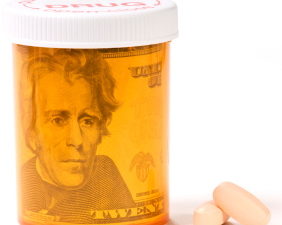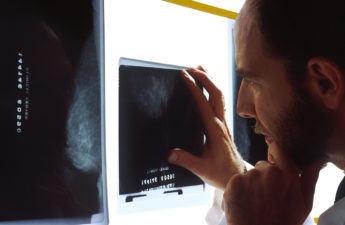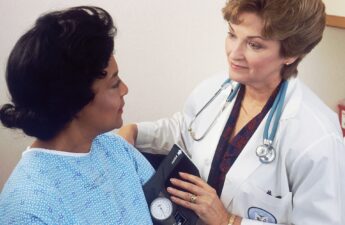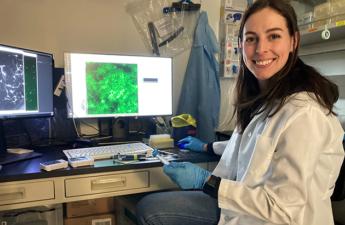Category: Hospitals
At Catholic Hospitals, a Mission of Charity Runs Up Against High Care Costs for Patients
Catholic health systems like CommonSpirit Health, Ascension, PeaceHealth, Trinity Health, and Providence St. Joseph pay their chief executives millions of dollars a year. CommonSpirit Health’s then-CEO Lloyd Dean earned roughly $28 million in 2022; he was among nearly three dozen executives who pulled down more than $1 million that fiscal year, according to the health system’s tax filings. Elsewhere, Rod Hochman, CEO of Providence St. Joseph Health, earned $12.1 million. Ascension CEO Joseph Impicciche was paid $9.1 million, according to corporate tax filings.
Health News Headlines
Needleless treatment for severe allergic reactions – US fertility rate at record low – Hunt for Adderall is On
Health News Headlines
Millions became uninsured as Medicaid programs cut coverage – More than 700 US hospitals at risk of closing – High cost of cancer screening
Hospital-acquired infections are rising – here’s how to protect yourself in health care settings
Dr. Nasia Safdar, a professor of infectious medicine at the University of Wisconsin-Madison, discusses why infection rates have gone up and how you can protect yourself as a hospital patient or visiting family member.
Why Many Nonprofit (Wink, Wink) Hospitals Are Rolling in Money
“Hospitals are some of the biggest businesses in the U.S. — nonprofit in name only,” said Martin Gaynor, an economics and public policy professor at Carnegie Mellon University. “They realized they could own for-profit businesses and keep their not-for-profit status. So the parking lot is for-profit; the laundry service is for-profit; they open up for-profit entities in other countries that are expressly for making money. Great work if you can get it.”
Do implicit bias trainings on race improve health care?
There is increasing evidence that implicit bias – non-conscious attitudes toward specific groups – is a source of racial inequities in certain aspects of health care, and lawmakers are taking note.
Infections after surgery are more likely due to bacteria already on your skin than from microbes in the hospital − UW researchers find
Research comparing bacteria in the microbiome – those colonizing our noses, skin and other areas of the body – with the bacteria that cause pneumonia, diarrhea, bloodstream infections and surgical site infections shows that the bacteria living innocuously on our own bodies when we’re healthy are most often responsible for these bad infections when we’re sick.
AI shown to dramatically speed protein engineering – UW study
Protein engineering scientists have been able to design more efficient proteins using machine learning quickly, dramatically shortening a process that typically takes months to years of trial and error.
King County launches ‘bup’ hotline.
Buprenorphine, also called suboxone, is a medication used to treat opioid use disorder. It is one of the best available treatments to alleviate withdrawal, reduce cravings, and reduce overdose risk by about half when taken as directed. It works by binding to the same receptors that opioids like fentanyl bind to, but it only turns them on about halfway. That keeps people from feeling sick and helps with their cravings.
Beware online mental health chatbots, UW specialists warn
AI chatbots may someday play an important role in mental health care, but many currently online are untested and unsafe.
The Powerful Constraints on Medical Care in Catholic Hospitals Across America
More than half a million babies are born each year in the U.S. in Catholic-run hospitals, including those owned by CommonSpirit Health, Ascension, Trinity Health, and Providence St. Joseph Health. That’s 16% of all hospital births each year, with rates in 10 states exceeding 30%. In Washington, half of all babies are born at such hospitals, the highest share in the country.
Governments can erase your medical debt for pennies on the dollar — and some are
Medical debt is the leading cause of bankruptcies in the United States, and more than 2 in 5 American adults have some. Some states and cities will use federal money to forgive millions of dollars of their residents’ medical debt.
Some states back hospital mergers despite record of service cuts, price hikes
In much of the country, a single hospital system now accounts for most hospital admissions.
How to Prepare for an Early and Long 2023 Wildfire Season in King County
his year, wildfire smoke is forecast to start early in King County and last into the fall. Record-setting forest fires have already darkened skies in Canada and the eastern U.S., and our region is set to be next. By preparing now, you can help to protect your and your family’s lungs, heart, and health from smoke.
Snooping in Medical Records by Yakima Valley Memorial Hospital Security Guards Leads to $240,000 HIPAA Settlement
The information accessed included names, dates of birth, medical record numbers, addresses, certain notes related to treatment, and insurance information.










